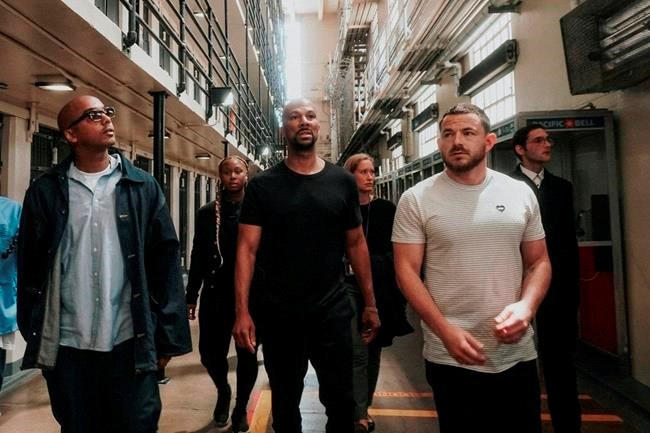NEW YORK — Rapper and activist Common went into quarantine concerned about incarcerated people he has met during visits to jails, prisons and juvenile detention
“It’s a troubling time for them,” Common said, “because they are the people who usually are overlooked.”
On Wednesday, his criminal justice reform organization Imagine Justice launched a campaign with dozens of advocacy and activist groups calling attention to the threat that the coronavirus pandemic poses on millions of men, women and youths who are incarcerated in the U.S.
The campaign, dubbed #WeMatterToo, is urging authorities to immediately release people who have served the vast majority of their sentences, especially if they have existing health conditions that put them at greater risk of severe illness or death from COVID-19. Although state and local correctional institutions have already released thousands of people from confinement due to the pandemic, supporters of the campaign also want governments to pay for testing and housing for inmates after they are released.
Common said he also hopes to create greater public awareness about what happens inside the nation's jails and prisons and the impact that has on society.
“We all have unanswered questions about the pandemic,” the Grammy and Academy Award winning rapper said. “But being in prison adds new levels to that questioning, because of the way that people have been treated in prison.”
A two-minute video for the campaign features the voices of inmates who say jail officials are not providing protective equipment or requiring social distancing and have not regularly sanitized shower facilities. The video, shared with The Associated Press ahead of the campaign's launch, does not identify the inmates or where they are imprisoned.
COVID-19 outbreaks in jails and prisons around the country have caused alarm among advocates, who say inadequate mitigation protocol threatens both the lives of incarcerated people and correctional officers. Last month, the U.S. Bureau of Prisons released data that showed more than 70% of people in federal custody tested for COVID-19 were positive.
Similarly dire outbreaks have been reported in a handful of state-run correctional systems.
In Common’s hometown of Chicago, where the Cook County Jail is one of the nation’s largest jails, a federal judge last month ordered officials to ensure social distancing among the 4,000 people in custody. As of Tuesday, 161 inmates and 81 correctional officers were positive for COVID-19, according to the sheriff’s department. Many more inmates have tested positive but recovered. Seven inmates who have tested positive have died.
Guaranteeing prisoners' safety during the pandemic is an issue of humanity, not politics, said Sam Lewis, executive director of the California-based Anti-Recidivism Coalition, one of nearly 65 partner organizations in the #WeMatterToo campaign.
“People have made mistakes that put them in jail,” said Lewis, a former life prisoner. “But that does not mean they should just die in those places. Accountability is not a death sentence.”
Before the pandemic, Common’s Imagine Justice group organized regular in-person visits to correctional facilities. Since the pandemic, visitation has been cut off or is severely limited at many facilities.
“Some of the strongest people I’ve ever met are in prison,” Common said. “I believe we can come out of this greater than we were before.”
___
Aaron Morrison is a member of The Associated Press’ Race and Ethnicity team. Follow him on Twitter at https://twitter.com/aaronlmorrison.
Aaron Morrison, The Associated Press




